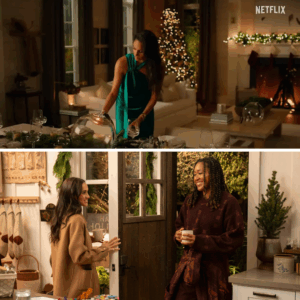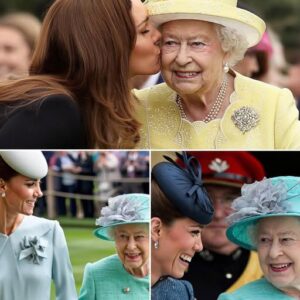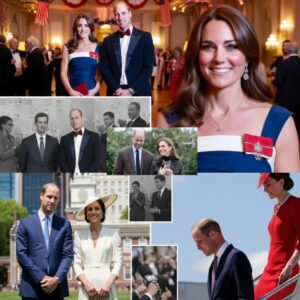In an era where social media amplifies every whisper into a roar, celebrities often find themselves at the mercy of online mobs. Henry Cavill, the British actor renowned for his portrayal of Superman in the DC Extended Universe and Geralt of Rivia in Netflix’s The Witcher, has long been a fan favorite. His chiseled physique, charismatic screen presence, and down-to-earth demeanor have earned him a massive following. However, like many public figures, Cavill has faced the darker side of fame: relentless scrutiny of his personal life. In a bold and poignant stand, Cavill once addressed vicious criticism directed at his girlfriend, Natalie Viscuso, with a simple yet powerful message: “It’s time to stop.” This statement, shared on social media, not only defended his partner but also sparked a broader conversation about respect, privacy, and the toxic underbelly of online culture.
The story begins in the spring of 2021, when Cavill, then 38, made his relationship with Viscuso public. The couple, who had been dating quietly, chose Instagram as their platform to share a glimpse into their life together. Cavill posted a photo of the two playing chess, captioning it with a lighthearted note: “This is me looking quietly confident shortly before my beautiful and brilliant love Natalie destroys me at chess.” Viscuso, a successful Hollywood executive and vice president at Legendary Entertainment, reciprocated with her own post, playfully suggesting she might have won fair and square—or perhaps Cavill let her. The images were wholesome, capturing a moment of genuine affection and intellectual sparring. Fans initially reacted with excitement; after all, Cavill had been linked to various high-profile romances in the past, including a brief fling with actress Kaley Cuoco, but this seemed different—more grounded and real.
However, the joy was short-lived. Almost immediately, the online sphere erupted with speculation and negativity. Trolls and self-proclaimed fans delved into Viscuso’s past, unearthing old photos and scrutinizing her every move. One particular image from 2008 became the focal point of the backlash. Taken during a trip to Namibia for a reality TV project, the photo showed Viscuso participating in a local tribal ceremony, where her skin had been painted as part of an initiation ritual. Critics accused her of cultural appropriation and even racism, labeling the act as insensitive in the context of modern social awareness. The photo, which predated her relationship with Cavill by over a decade, was weaponized to paint her as unworthy of the actor’s affection. Comments flooded social media, ranging from jealous rants about Cavill’s choice in partners to outright harassment. Some fans expressed disappointment, claiming Viscuso didn’t fit their idealized image of who should be with their idol, while others spread unfounded rumors about her character and intentions.
This kind of backlash is not uncommon in celebrity relationships, especially when one partner is less famous. Viscuso, despite her accomplishments in the entertainment industry—including work on projects like Godzilla vs. Kong—suddenly became a target. The criticism wasn’t just about the resurfaced photo; it tapped into deeper issues like possessiveness among fans, who often feel entitled to dictate celebrities’ personal lives. Cavill, known for his privacy, had previously kept his relationships out of the spotlight, but going public invited this invasion. The animosity grew so intense that it spilled over into Cavill’s own social media feeds, with users tagging him in hateful posts and demanding explanations.
It was against this backdrop that Cavill decided to respond. On May 15, 2021, he shared another photo with Viscuso—a selfie where they appeared relaxed and content—and accompanied it with a lengthy, thoughtful caption. In it, he acknowledged the “social animosity” that had become prevalent on his platforms. “I couldn’t help but notice that there has been some social animosity of late,” he wrote. “It’s becoming increasingly prevalent on my feed. There has been lots of, let’s call it speculation for now, about my private life and professional partnerships.” Cavill didn’t shy away from calling out the harm caused by such behavior. He emphasized that while speculation might seem harmless or even fun, it often stems from misplaced passion and can inflict real pain on those involved.
The core of his message was a call for empathy and growth. “We are living in an age of social enlightenment,” Cavill noted, urging people to expand their views and recognize the humanity behind the headlines. “To you out there who are expressing your disdain and showing your displeasure through a surprising variety of ways, it’s time to stop.” He pointed out that even the most conservative negative assumptions about his life were unfounded, and that the gossip was causing harm to the people he cared about most. Ending on a positive note, Cavill declared, “I am very happy in love, and in life. I’d be enormously grateful if you were happy with me. If you can’t bring yourself to be happy with me, then at the very least try to do yourself proud and be the best version of yourself.”
This response was powerful in its restraint. Cavill didn’t lash out or engage in a war of words; instead, he modeled the maturity he was advocating for. By framing the issue as part of a larger “social enlightenment,” he elevated the conversation beyond personal defense to a commentary on societal behavior. His words resonated because they came from a place of genuine concern—not just for himself and Viscuso, but for the broader impact of online negativity. In a world where celebrities often ignore trolls or respond with sarcasm, Cavill’s approach was refreshingly direct and compassionate.
Following Cavill’s post, Viscuso addressed the controversy surrounding the 2008 photo. In a statement, she expressed regret if the image had caused offense, explaining the context: it was part of a cultural initiation during her time in Namibia, where the tribe had painted her skin as a sign of acceptance. “Never in a million years did I think that this would be offensive,” she said. “In fact, I felt honored that they would initiate me. However, with the lessons that we are all learning in today’s climate, it is important that I recognize that this is potentially hurtful. My deepest and most sincere apologies.” Her apology highlighted the evolving understanding of cultural sensitivity, acknowledging that intentions don’t always align with perceptions.
The couple’s handling of the situation drew mixed reactions. Supporters praised Cavill for standing up for his partner and promoting positivity, while detractors continued to nitpick. Over time, however, the incident faded from the headlines, allowing Cavill and Viscuso to focus on their relationship. They maintained a low profile, occasionally sharing glimpses of their life together, such as joint appearances at events or subtle social media updates. By 2024, their bond had deepened, culminating in the announcement of their first pregnancy. Cavill confirmed the news at a red carpet event for The Ministry of Ungentlemanly Warfare, expressing excitement about fatherhood. “Yes, absolutely,” he said when asked if he was looking forward to it, adding with a smile, “I’ll be turning to the audience for some tips.”
Tragically, the happy news reignited old flames of criticism. The 2008 photo resurfaced once more, with some online users dredging up the past to question Viscuso’s character amid the pregnancy buzz. This pattern underscores a persistent problem: once something is online, it never truly disappears. Fans and trolls alike revisited the controversy, debating whether past mistakes should define someone forever. Yet, Cavill and Viscuso chose not to engage directly this time, perhaps learning from the 2021 experience that responding can sometimes fuel the fire. Instead, they focused on their growing family, welcoming their first child—a baby girl—in early 2025. Cavill later made a rare comment about the newborn, describing the experience as “wonderful” and expressing gratitude for the support from true fans.
Cavill’s stand against online negativity extends beyond this personal episode. As a public figure, he has consistently advocated for mental health and kindness. In interviews, he’s spoken about the pressures of fame, including the toll of constant judgment. His message in 2021 served as a reminder that celebrities are not immune to hurt; they are real people with emotions, relationships, and boundaries. This incident highlights the double-edged sword of social media: it connects stars with fans but also enables anonymous harassment. Studies have shown that online bullying can lead to anxiety, depression, and even self-harm among victims, regardless of their status.
In the broader context, Cavill’s response aligns with a growing movement among celebrities to push back against toxic fandoms. Stars like Taylor Swift, who has addressed stalkers and invasive paparazzi, and Tom Holland, who has spoken out about privacy invasions, echo similar sentiments. The rise of “cancel culture” has prompted discussions about accountability versus mob justice. While holding people responsible for harmful actions is important, Cavill’s case illustrates how disproportionate reactions can overshadow redemption and growth. Viscuso’s apology demonstrated accountability, yet for some, it wasn’t enough—revealing the unforgiving nature of the internet.
Moreover, this event sheds light on gender dynamics in celebrity relationships. Female partners of male stars often bear the brunt of scrutiny, facing judgments on their appearance, career, or past that their male counterparts escape. Viscuso, a accomplished professional in her own right, was reduced to “Cavill’s girlfriend” in many narratives, her achievements overshadowed by controversy. This reflects societal biases where women are held to higher standards of perfection.
Looking ahead, Cavill’s career continues to thrive. With roles in upcoming films and series, including potential returns to superhero franchises, he remains a beacon of professionalism. His personal life, now enriched by fatherhood, seems more protected than ever. The couple’s rare public outings, like attending Wimbledon in 2025, show them united and unfazed by lingering noise.
Ultimately, Cavill’s powerful move against online negativity wasn’t just a defense of his relationship—it was a call to action for all of us. In a digital age where words can wound from afar, his words remind us that behind every profile is a human being deserving of respect, love, and privacy. By choosing positivity over retaliation, Cavill not only protected his loved ones but also inspired a more compassionate online world. As he put it, it’s time to embrace enlightenment and move forward. Perhaps, if we heed that advice, the internet can become a place of connection rather than conflict.



